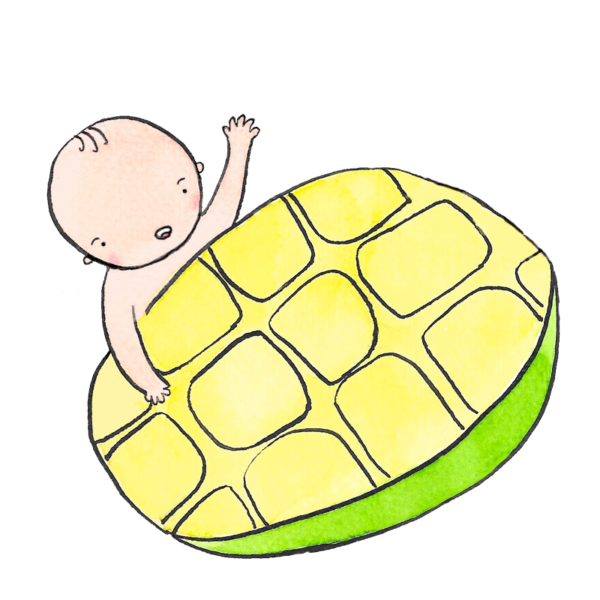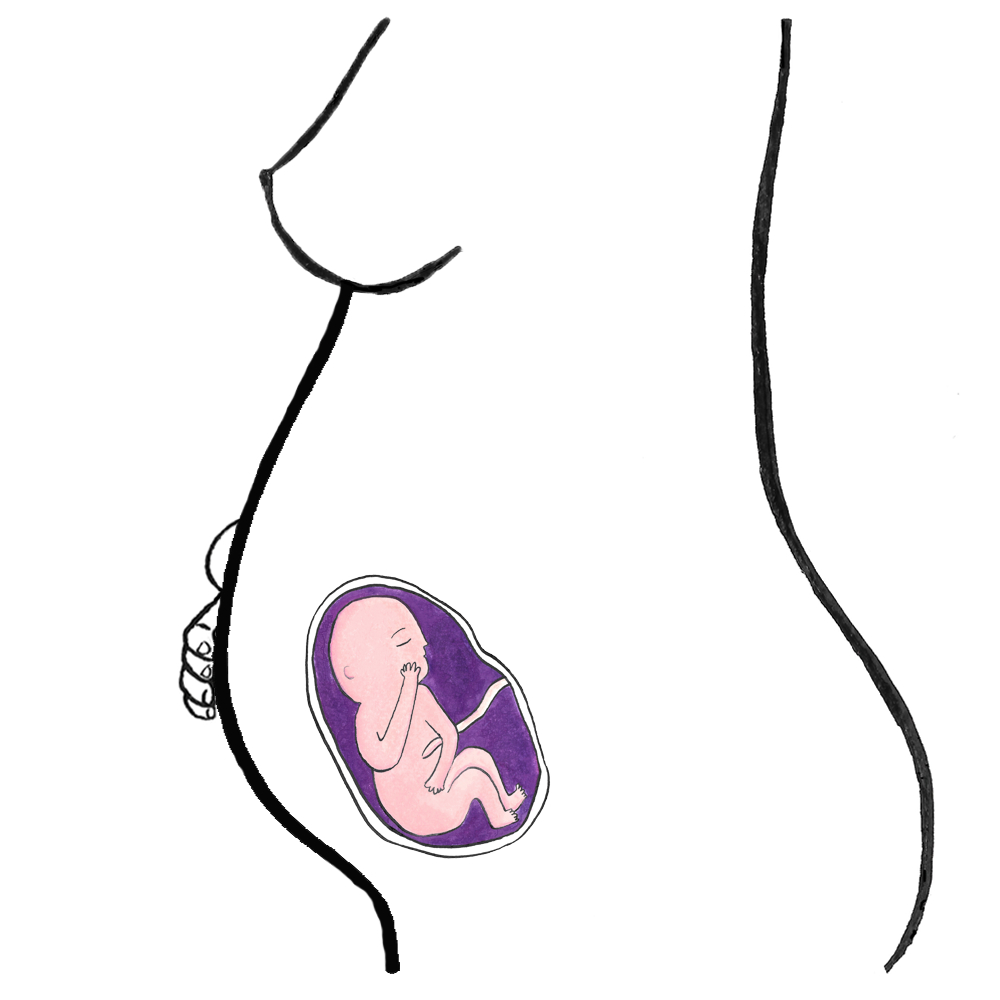22 weeks pregnant
Weekly update

Your Child now sleeps for about 14 hours per day and spends the rest of the time awake, often practicing new movements. You may start to notice pain at your butt, known as piles.
Your Child’s development
Your Child now weighs 430g and measures about 28cm — the size of a Thai mango. At this stage, Your Child is learning more motor skills and tries to touch the body, face, or umbilical cord.
The eyes: The eyes continue to form but yet to develop iris pigment, which gives the eyes their color.
Visible hairs: The hair on Your Child’s head grows in a pattern that forms on Your Child’s scalp that will remain for a lifetime. Eyebrows and eyelashes are now also visible.
Fat: Brown fat, also known as adipose tissue, is forming. This type of fat protects Your Child from hypothermia, which is a drop in core body temperature. Infants tend to lose more heat to the environment than adults, so hypothermia can be a serious problem, especially for premature newborns.
Hormones: The thyroid gland started functioning a few weeks ago. Thyroid hormones are essential for the normal development of Your Child before and after birth. The hormones, such as thyroxine, regulate the body’s metabolic rate and influence heart, muscle function, and brain development. This week, the levels of thyroid-stimulating hormone and thyroxine begin to increase and, eventually, will reach adult levels at 37 weeks.
The genitals: For baby boys, the testes have begun to descend.

Your development
You may still be experiencing heartburn and may notice that your hands and feet are swollen.
Belly button: Your navel will likely pop out, and you may feel it when it rubs against your clothes. You don’t need to worry about it as it will go back to normal after your delivery.
Piles: You might experience piles, which is a pain in the buttocks, also known as hemorrhoids. These swellings inside or around your anus and rectum, often feel itchy and create pain when you poo. Sometimes, you may also see spots of blood or mucus. Anyone can get piles, but they’re more likely to pop up in pregnancy. That’s because the pregnancy hormone, progesterone, relaxes the walls of your blood vessels and causes them to swell up.
What you can do
As a result of foot swelling and widening, you may want to get used to wearing comfy shoes for the next few months.
Drink water and get your fiber: You can help to avoid piles and other pregnancy symptoms by drinking lots of water and choosing high-fiber foods, such as wholemeal bread, fruits, and lots of vegetables.
Verified:
Dr. Wanwadee Sapmee Panyakat (OB-GYN), license no. 41208 (20 October 2021)



